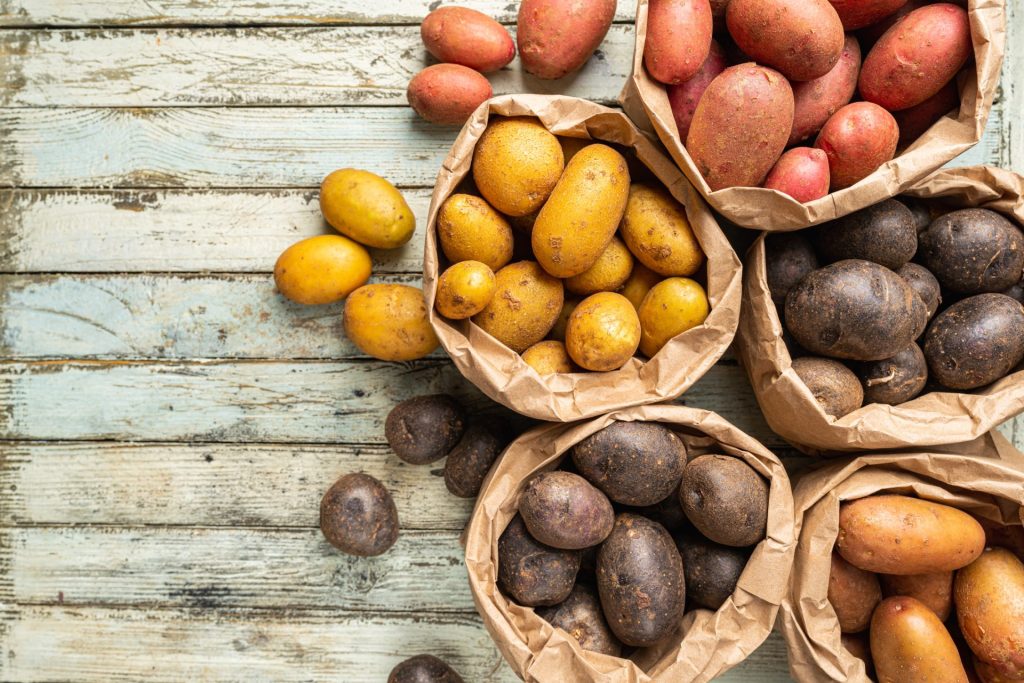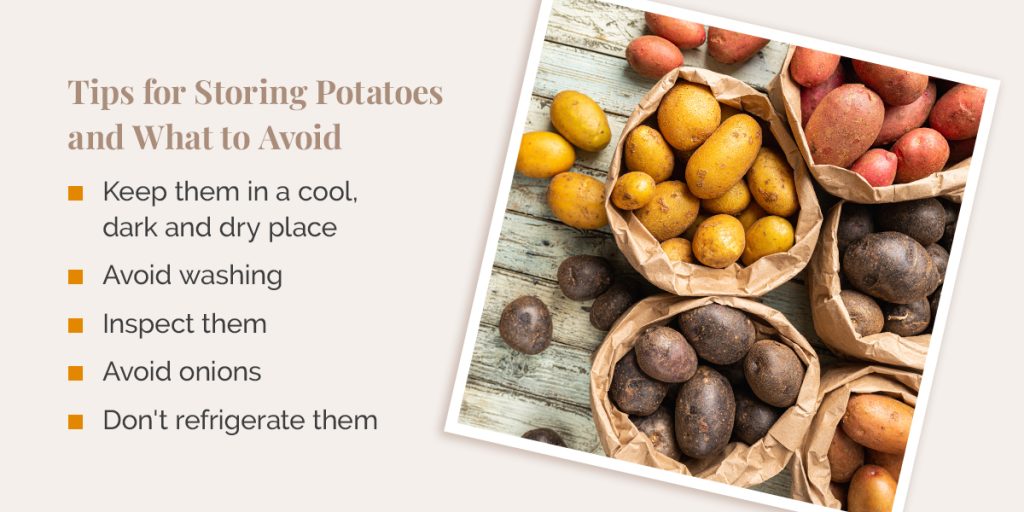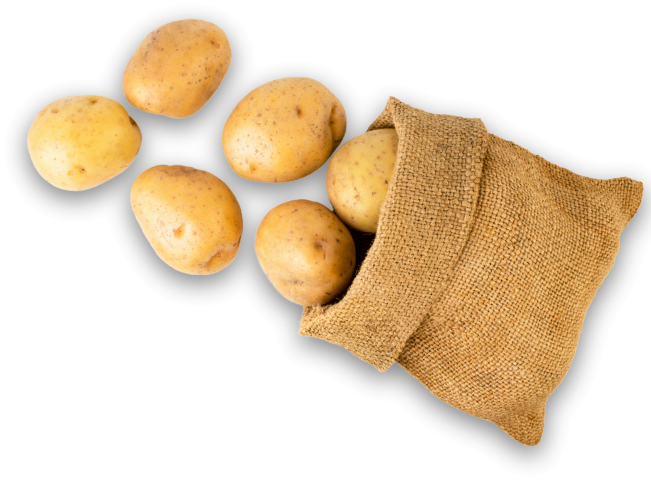

How to Store Potatoes and Make Them Last

Maintaining fresh products is essential when running a food business, ensuring you satisfy customers and create quality dishes. To help you achieve this, we’ve put together some useful storage tips on how to keep your potatoes fresh.
Tips for Storing Potatoes and What to Avoid

Learn our best tips for how to prevent potatoes from rotting:
- Keep them in a cool, dark and dry place: Potatoes should not be exposed to direct light, as this can lead to them turning green and producing a toxic substance known as solanine. To avoid this, store potatoes in a dark place with a temperature range of 43-50°F or cover them with a cloth or paper bag. A pantry or vegetable root cellar is a good option as long as it’s not too damp. Don’t keep potatoes in plastic bags — use a ventilated container like a mesh bag or crate to allow air circulation.
- Avoid washing: Washing potatoes before storing can cause them to spoil faster. The moisture from washing them can promote bacteria and fungi growth, so only wash them right before cooking.
- Inspect them: Check your potatoes regularly for spoilage. Keep them out of sunlight, but ensure they’re visible enough so you won’t forget about them. Avoid storing bad potatoes. If a potato has started to sprout or is soft or discolored, it should be removed from the rest, as one bad potato can spoil the whole batch.
- Avoid onions: Don’t store your potatoes with onions, as they can spoil faster due to the gas emitted.
- Don’t refrigerate them: Avoid refrigerating your potatoes, as this can turn their starch into sugar, affecting their taste and texture.
How Long Do Potatoes Last?
When correctly stored in a place such as a pantry or a root cellar, they can last up to two months from purchase. If you’re storing them at room temperature, they can last 1-2 weeks. Storing cooked potatoes can be quite tricky, as they are more perishable than raw potatoes and have a high moisture content. Here is our expert for storing potatoes and how to keep potatoes from rotting.
Storing Raw Potatoes
The stage of maturity affects your potatoes’ shelf life. New potatoes, which are harvested when they’re still young, have a shorter shelf life than mature ones. New potatoes are more delicate and have a higher moisture content, making them more prone to spoilage. Handling your raw potatoes gently during storage is essential, as bruised or damaged ones will spoil more quickly than intact ones.
Peeled potatoes should be submerged in cold water to avoid discoloring. When stored this way, your peeled potatoes can be kept for up to a day. Don’t cut or dice your potatoes when storing them in water as they will get waterlogged, affecting their flavor and texture.
Storing Cooked Potatoes
It’s important to quickly move your cooked potatoes to the fridge or freezer when storing them. Leaving them at room temperature for too long can cause bacterial growth, which can lead to food poisoning.
When storing cooked potatoes in the fridge, place them in an air-tight zip-close bag to keep them from absorbing any odors or flavors. Ensure you label each container with the date to keep track of them — cooked potatoes can last up to 3-4 days when refrigerated.
Signs a Potato Is Going Bad
As potatoes age, they may start to wrinkle and become dehydrated. This signals that they’ve lost moisture and are not as fresh. Soft or mushy spots are signs of spoilage — these spots may also be discolored and emit a foul odor. If your potatoes have an unpleasant odor, they have started rotting.
When potatoes start to sprout, this is another indicator that they’re no longer fresh. Green potatoes also need to be thrown out due to their solanine, which can be toxic in large quantities.
Get in Touch Today for Fresh Potatoes
Get high-quality potato stock for your restaurant by buying your supply from Keystone Potato Products. Contact our potato-loving team today for a quote.


